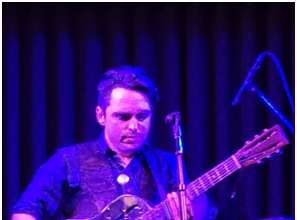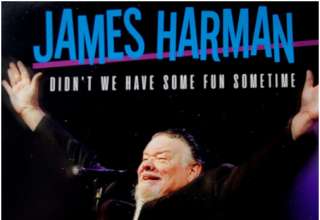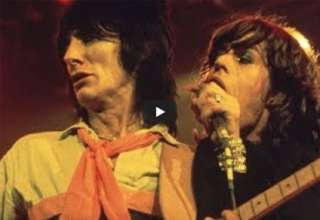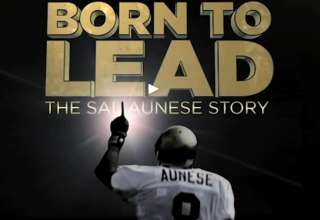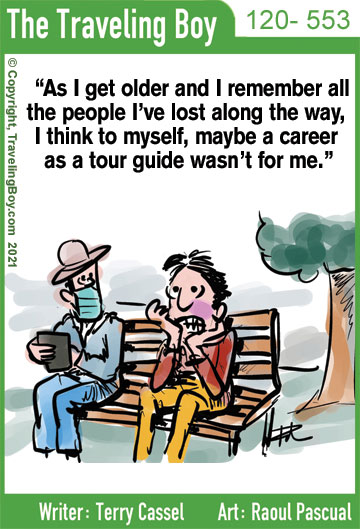John Primer is the youngest 77 year-old you’ve ever met. If you ask him if it’s the music that keeps him young, he’ll tell you “No, my wife keeps me young!” (laughing) Like most interviews with blues people, this one took place about one in the morning and John had just finished a scorching two and a half-hour set with Bob Corritore and friends. The guys have just completed the West Coast leg of their current tour before turning East; then immediately John begins preparing for a series of European shows in the UK at the start of the New Year. He’s seventy-seven!
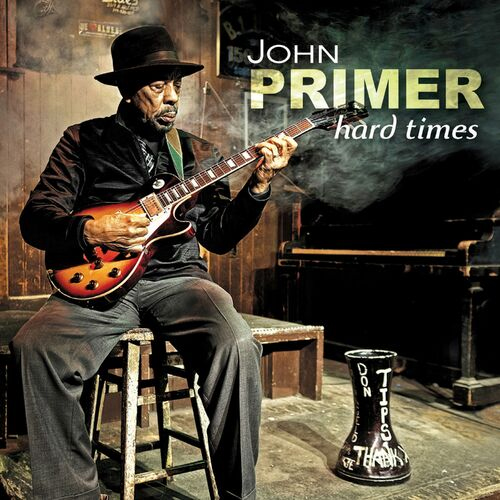
Primer has been amazingly productive over the years; he’s recorded and toured with everyone from Muddy Waters and Willie Dixon to Junior Wells and James Cotton. I lost track of the number of albums he’s listed on at around 87 or 88. John just smiles at me “probably more than that.” From a sharecropping family to a legendary blues man, John Primer is the real deal so we started our conversation with his first instrument.
Is it true you made your first instrument…a diddley bow and what did you make it from?
“Yeah, I did. I used some wire that came out of my grandmama’s broom. A piece of wire from a broom or we’d burn up a car tire and get the wire outta’ there. That was the best one, the best one to make a diddley bow out of. But my uncle and cousin had one made up already and I learned from that and started making my own.”
Tell me about your first musical memories or when you first heard the blues?
“My grandma’s record collection is where I first heard the blues and stuff like that; it was from a record, yeah. We had 78s and 45s. I had a cousin that lived down the hill from me, she had a wind-up phonograph. So my cousin had it and I’d get up in a chair like this, so I could reach it and play it. I’d play Bo Diddley and Muddy Waters. Get in that chair and wind it up and listen to it play those 78 records. Muddy Waters, ‘Can’t Be Satisfied’ John Lee Hooker…” (John breaks into song) ‘…my baby got somethin’ I sure do love…my baby got something.'”
Was the church a big influence on your music?
“Yeah, a lot of church music…gospel, yeah.”
You grew up working.
“I did, yeah. We couldn’t go to the fields until we got twelve years old, I started in the field then. But picking cotton and stuff wasn’t my…I never wanted to do that kinda’ stuff, I wanted to play guitar and be a musician. I didn’t think I could do good picking cotton or pullin’ corn; too rough for me. But I did it, yeah.”
‘Hard Times’ John Primer
Do you remember the first time you played on a guitar?
“Uh, I was about three or four years old. I had a cousin who had one, it was an acoustic guitar but I don’t remember what the name was, I was too little to know. I couldn’t read then, I was too young.” But you knew you wanted to play with it. “I wanted to play guitar, all my life I wanted to be a musician.”
Tell me a little about Chicago in 1963?
“I came to Chicago when I was eighteen years old. It was great! Music was everywhere, comin’ all out of people’s houses, bands playing and rehearsing in houses.”
You spent time on Maxwell Street?
“In 1963 I used to go down there all the time, every Sunday. I used to see a guy named One Arm John (Big John Wrencher) and you’d see Muddy Waters down there and John Lee Hooker. I just wasn’t familiar with all these guys because when I was in Mississippi, I was familiar with Muddy Waters and Jimmy Reed and Howlin’ Wolf and Lightnin’ Hopkins. You know Arthur ‘Big Boy’ Crudup… all the old guys, Big Bill Broonzy.”
When you listen to John Primer’s blues, you hear influences from the Delta, there’s some funk and R&B as well. How do you get all these styles to flow through your music?
“I learned when I started to play guitar and I learned it when I came to Chicago. I could play the blues when I was down in Mississippi but when I came to Chicago I studied all types of music.”
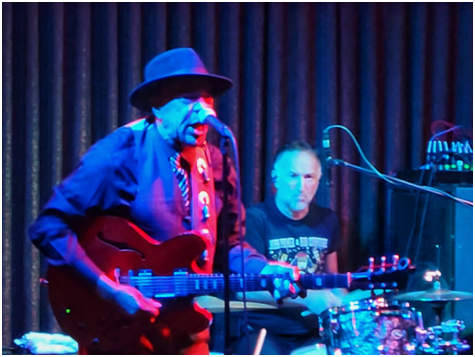
Let’s talk a little about Pat Rushing and the Maintainers.
“Well that was the first band, yeah. It was a good thing; I had a friend that lived across the street and his dad used to be the road man for Elmore James, he was called Big Jim. I met some of those guys and we created a band later on. I remember when Elmore passed, they were getting ready to go do a show and he had a heart attack. They found him in his room, I think he was out of town, laying across his bed; he’d had a heart attack. So he was gone but I still knew his music from when I was in Mississippi. When I lived in Mississippi, I thought all those guys had passed away…Muddy Waters and all of them, Jimmy Reed (laughing) I didn’t know. When I got to Chicago I found they were all still alive.
See, when I grew up I came up with all that music. All the blues, the old-time blues they were creating it back then, everybody was playing it. That’s why I know so much old blues from way back. I’m just like an elephant; I don’t forget nothin’…I remember!”
The clubs and bars in Chicago in the 50s and 60s were pretty rowdy places to play.
“Yeah it was insane. They’d be fighting in there or they get drunk and some of the men would get jealous because some other man was talking to his woman. I remember when Little Walter played, he was a handsome dude and the women were crazy about him, so there’d be a fight even before the show was over. Little Walter was crazy.”
Snooky Pryor told me about a place called the ‘Bucket o’ Blood’ you ever play there?
“I remember that. There was a place called the ‘Bucket o’ Blood’ and we weren’t allowed to go in there. My friends…it was in Chicago and my buddies, you know I’d hear them talk about the Bucket o’ Blood and I knew where it was, but I was too afraid to go in there!” (laughing)
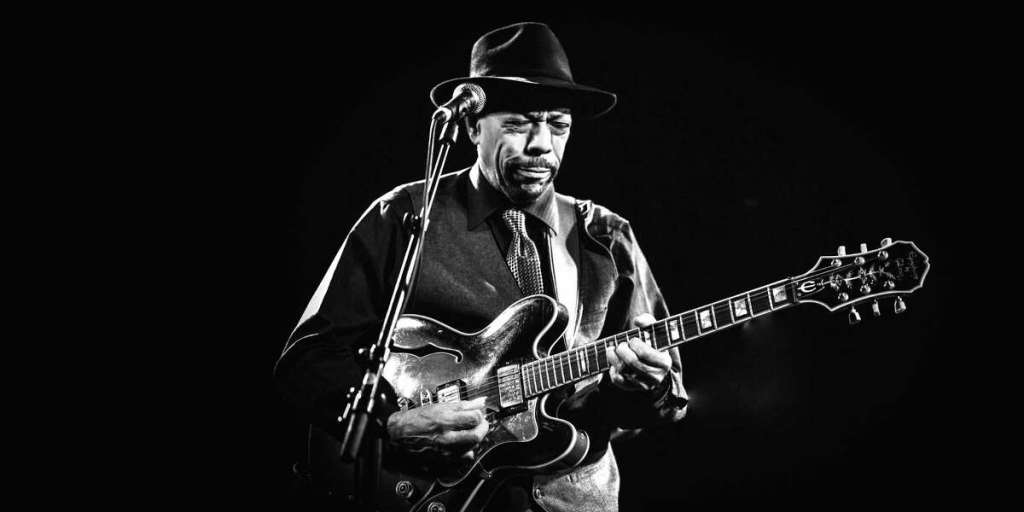
Tell us about your association with Sammy Lawhorn.
“I got the chance to play at Theresa’s Lounge with him. I didn’t know nothin’ about Sammy and I started working at Theresa’s in 1972 and Sammy was the guitar player ’cause Muddy had fired him. He fired him because he’d always go onstage and get drunk and be playing, you know? Muddy was frustrated and would say something to him and Sammy would cuss him. F you MF. And Muddy got tired of it, so he said it again a few times. Muddy pointed his finger at him and said, ‘you got one more time to say that to me.’ So, they were at a college playing, Sammy got drunk, drunk and Muddy looked down and Sammy had peed all over himself. Muddy was playing and just stopped! He told everybody, ‘Excuse Me!’ and Sammy was sitting on his amp playing and Muddy slapped him off the amp! POW! And the bouncers came in got Sammy by the foot and pulled him off the stage and he was fired. He played with Muddy for 15 years.
He’d get drunk at Theresa’s when I got down there, he’d get drunk and I’m a rhythm guitar player and that was the worst time. When he’d get drunk, I was so nervous and scared, what am I gonna do?”
What did you learn from that relationship?
“Oh man, I learned…7 years. He told me, ‘learn what I play, but you can’t be me.’ Learn what I play, but I won’t be here forever and you’ll be playing this. I started learning slide by listening to him.”
Theresa’s Lounge for seven years?
“Seven years, seven nights a week!”
With Junior Wells and Sammy Lawhorn, that’s crazy.
“Yeah, Junior Wells and Sammy Lawhorn. I’d just stay in the back and watch people drink and get drunk.” (laughing) “…drinking whiskey and stuff. I’ve never been a drinker and put myself through that. And when I did try it, it was a down for me and made me sluggish and I couldn’t play nothin’ right. Playing music for me was more important than drinking. You don’t have to get drunk to play music.”
You seem to always enjoy sharing your stage with others. Inviting people up to play with you and the band, it’s like mentoring in real time.
“It don’t bother me when other people come up and play. You know why? Because they can’t play what I play.” (Sammy Lawhorn 101) “And I can’t play what they play. So I don’t worry about it, let’ em go ahead…I like for them to shine. The better they play, the better I sound! Sammy Lawhorn told me, ‘look, don’t worry about what the next person is playing, ’cause I was playing rhythm. When someone comes up and starts playing that good lead and stuff, play that good rhythm and people are going to be paying attention to you. And they do, ‘how do you play rhythm like that? Hey, if you stand up there and play with all them drunk people for seven years…”
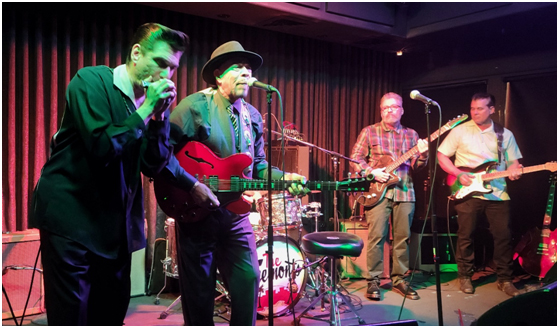
Junior Wells had a pretty wild reputation.
“I never had a problem playing behind Junior. Junior was very good to work with. When I met him they was playing in this club called ‘Peyton Place.’ Sam Goode took me down there, because he knew the band needed a guitar player. He introduced me on a break and he said, ‘when we go back, I’ll call you up.’ They went back to playing and they called me up. They were playing blues or whatever, I knew it anyway. I stayed and played with them all night. Junior told me, ‘Hey man, you sound great I like the way you play. I tell you what I got this gig down on 48th Street and Indiana called Theresa’s Lounge.’ I’d never heard of the place, ’cause I never went to the Southside. Junior said, ‘You meet me down there Sunday, I’m gonna’ be rehearsing ’cause I fixin’ to quit…’cause I’m tired of this shit.'” (laughing) ‘Three o’clock!’
So, I’m on the Westside and caught the L to 55th Street and caught a bus over to Indiana Street and caught another bus…at that time the Blackstone Rangers, they ruled the Southside. Their club was on 4801 So. Indiana and I got off the bus a block before because I didn’t quite know…and the bus didn’t stop there you had to go to 47 Street. I got off at 49th. And when that bus pulled off, man…Ohh! I was so afraid, when the bus pulled off, I pulled off, too! And when that bus got to 48th Street, I was at Theresa’s. I ran all the way there with my guitar! I wanted to play, you know?”
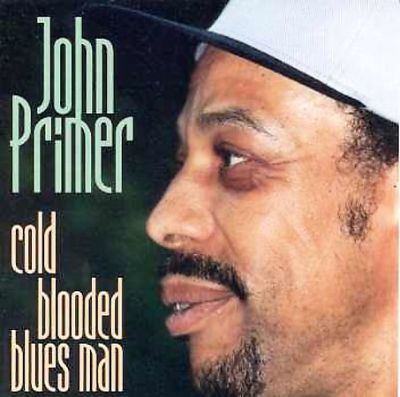
Did you ever run into Hubert Sumlin in those days?
“You know in seven years, I never saw Hubert, he was too famous with Howlin’ Wolf. He never came down there. But I played with Louis Myers and Dave Myers, the Four Aces, Fred Below all those guys. They come down there and play sometimes.”
Didn’t you play on Louis Myers last recordings?
“Right, sure did. It was good, it was tough because he was kinda’ sick, but it was good, man. I knew his music because they used to come in Theresa’s and sometimes him and Dave would play the whole night on a weekend. I learned a lot from them, I learned a lot from those guys, man. And they taught me a lot, showed me what to play and when to play it.”
You also played on James Cotton’s ‘Take Me Back’ album. (laughing)
“Aw man, James Cotton was something else, man. When he’d come back in town, that’s where he’d come; Theresa’s. And they’d hang out all night and be out until daylight…Whiskey and cocaine. I toured with him all over, Phoenix, Denver he was trip, man.”
How did your association with Willie Dixon’s All-Stars come about?
“I was playing at Theresa’s and Willie Dixon came down and I’d be singing all the Howlin’ Wolf and Muddy Waters stuff. I was lookin’ who is this big guy sittin’ there? I didn’t know who he was. In 1979 he needed a guitar player to go to Mexico.” (Willie Dixon’s All-Stars) Primer in his best low growl Willie Dixon impression… ‘Hey, I like the way you play. You know my stuff and I need a guitar player to go to Mexico, you interested?’ I said Yeah! ‘Do you have a passport?’ I said no. ‘Tell you what, I’ll be by your house on Monday and we’ll go downtown and get you a passport. You got any money?’ I said no. A passport cost $80 bucks, man. ‘You can just pay me.’
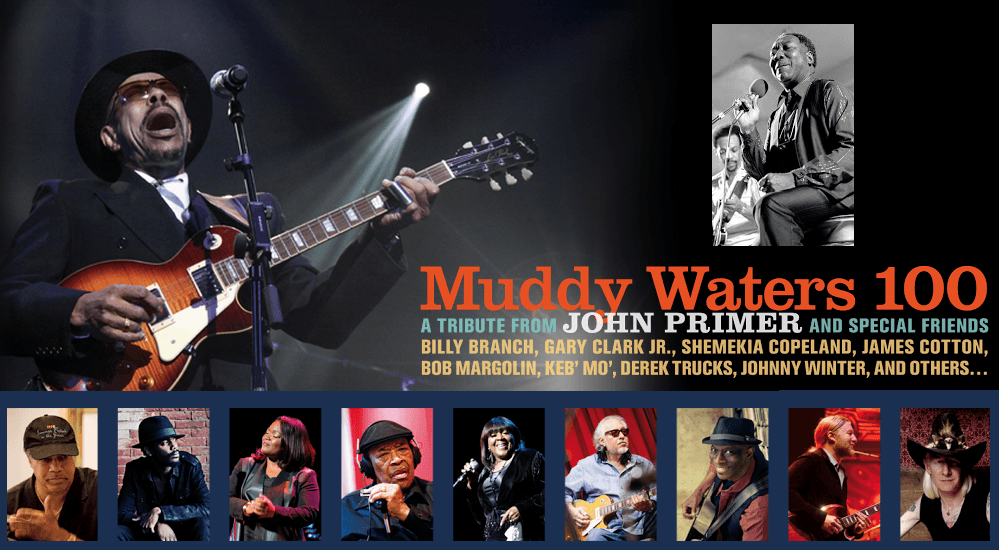
That late 70s All-Stars tour had some talent.
“Koko Taylor, Muddy Waters, Big Bill Broonzy, the guy that had the guitar strings all tied up there.” (laughing) “Larry Davis. That’s when Muddy heard me play…with them. Before they came up to play, Muddy and Dixon were back there talking and Muddy ask him (Primer in his best Muddy impression) ‘who-who’s that young man…playing that guitar…up there?’ (Primer does Dixon’s growl) ‘That’s John Primer…he works down at Theresa’s.’ Muddy responded, ‘That man sure knows my music.’ So, in 1980 when Muddy’s band quit, he called Willie Dixon and asked for me.”
You worked with Muddy till he passed?
“Yeah, about two and a half years.”
From listening to Muddy when you were a child, then getting that call to come play with him…I just can’t imagine.
“It was my dream; I had a dream when I was in Mississippi at about 14 years old about playing in Muddy’s band. So my dream came true. I was jumping for joy when they came down there and got me. Mojo Buford came down there.” Primer in his best Mojo impression… ‘Muddy needs a guitar player, he sent me down to ask you, did you want to join the group?’ “What? Man, I jumped for joy. Lovie Lee playing piano, Jessie Clayton was the first guy to play drums, but he didn’t want to go out of town, he didn’t want to leave his wife. So I took Lovie Lee and we went and got ‘Killer’ Ray Allison and a guy named Rick Kreher. Rick is playing on my latest CD, ‘Hard Times.’ The last guitar players to play with Muddy Waters was him and I. So, I gotta’ chance to play with Muddy, man. I was full of joy; I didn’t even go to sleep that night, waiting for Mojo to come get me.”
Then came the Holt’s…
“Magic Slim! It was right on time for me ’cause Slim was another guy like Muddy; workin’ hard, a workin’ man and workin’ all the time. Thirteen years.”
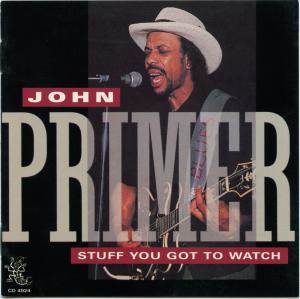
Your first recording under your own name was with Michael Frank in the 90s, ‘Stuff You Got to Watch.’
“He was the first guy who came to me to record me. I was doing stuff with ‘Wolf Records’ people coming from Europe to record me. But ‘Stuff You Got to Watch’ was my first American record…with Michael.”
There are so many people that you’ve played with, but the Stones with Muddy at the Checkerboard Lounge…that’s just wildness.
“That one video, it helped me out, a lot.” John remembers. “People didn’t really recognize me too much when I was playing with Willie Dixon but when I got with Muddy Waters; it really put the icing on the cake for me. The thing I learned from Willie Dixon was how to write blues.”
Primer’s latest release, ‘Hard Times’ is a testament to that. John wrote all thirteen songs on the new record. “All originals.” he smiles. “I wrote everything on there, except one song. My daughter has one on there.” The new project also debut’s John’s daughter, Aliya Primer. “She’s seventeen years old and she can sing.” He beams. “We used to take her on tour with us everywhere…she was two or three years old and traveling around.”
Discography, I lost track after about 87 albums. You are a prolific session player. You’ve been featured on or have performed on 87 recordings? That’s incredible in itself.
“Probably more than that.” John grins. “That’s just where I lost count. I did all the Wolf stuff, all the guys that had been forgotten and they got them and took them in the studio and recorded them.”
(Authors note: Wolf Records is out of Vienna, Austria and what’s really fascinating about the label and probably why they are still so popular; it was started by blues music fans with an appreciation of all things blues; from the early originators to the contemporary Chicago blues sound.)
You played with Magic Slim on a Tribute album to ‘Hound Dog’ Taylor.
“That guy was amazing. He had like six fingers on each hand. He cut one of them off…or tried to cut it off.”
No…why? Why would he do that?
John just shakes his head “guess it just got in his way of playin’!” Bluesmen, you gotta’ love ’em!
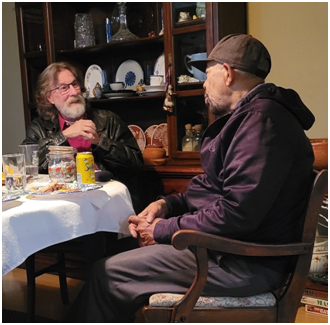
From your perspective, as a long-standing participant and knowing so many of the younger players coming up, how do you feel about the state of the blues today?
“To me, I’m loving it and it’s looking good.” And if I ask you about your own musical direction? “I’m not going to change the state of the blues; I’m going to keep it real…the original sound and keeping it as close to the original stuff that I learned and I don’t try to change it. Everything you see me playing on stage is going to be real close to the original stuff. All I need is a four-piece band, maybe a keyboard. I would always have a harmonica in my band. I would not have a band without a harmonica player.”
Speaking of playing on stage and harp players, you’re on the road now with Bob Corritore, what’s that like?
“Bob is great to work with, he ain’t gonna’ fuss atcha’!” (laughing) “But he’s a hard working man and he’s gonna’ make you do it right!”
You have a new album out, ‘Hard Times’ that you’re touring behind. You’ve been nominated for Grammy’s twice, you’ve received not one, but two Lifetime Achievement Awards and you’re in the Chicago Blues Hall of Fame. What’s left to accomplish?
“Well, I’m just going to keep on pushing, keep on trying. I’m doing what I love to do, so if I don’t get it, I ain’t going to sweat it, I’m going to keep on doing it, till I get it.”
You always look like you’re having fun on stage, does music keep you young?
“No, my wife keeps me young!” (laughing) “She keeps me in good health and everything.”
As you look down the road do you see a future with blues in it?
“Well, I hope people will pay more attention to the blues, just to see what it’s all about. There’s not many people around now playing the real stuff. You can put whatever you want into the blues and I say this all the time, you cannot change the blues. You can add rock and roll players and call it blues. It’s not the real blues, but I like what they do and I’ve got nothing against it because… they’re keeping the blues alive! So I give them the respect.”
Last Call, describe John Primer’s blues.
“It’s the traditional blues, the way it was played, the way it was made. That’s the way I play it. I don’t try to change it. Not just blues, but all music has got to have a feeling. You don’t get up there for the hell of it or to just show off. If you don’t have the feeling of it, you just can’t do it. My feelings come from hard times and hard living and that’s the way I play…from my heart.”
Amen.


